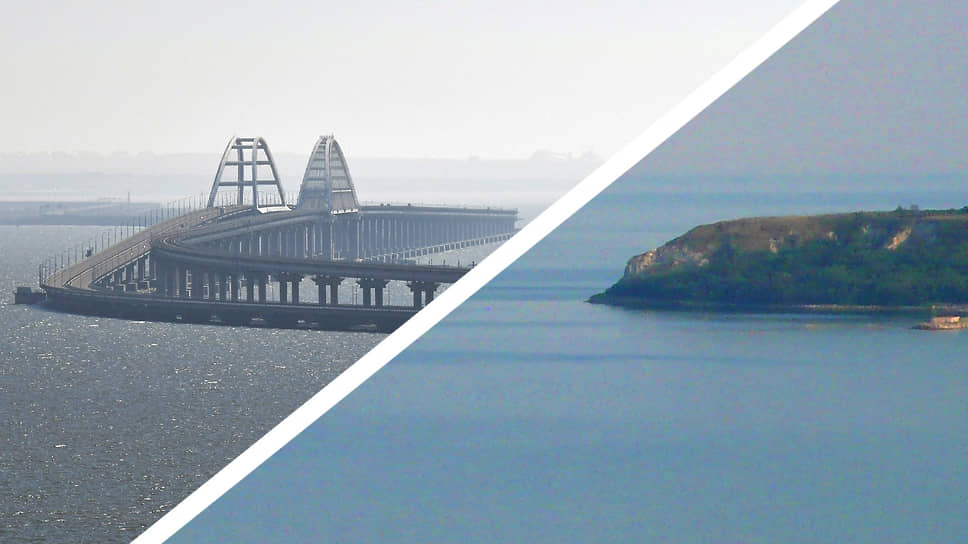A round table dedicated to the 10th anniversary of the annexation of Crimea to Russia was held at the Public Chamber
[ad_1]
The Public Chamber of the Russian Federation hosted a round table dedicated to the historical significance of the “return of Crimea to its native harbor.” Its participants unanimously recognized that the events of ten years ago were the beginning of the “reassembly of the Russian world” and showed the way to Russia not only for four new subjects, but also for other territories that had not yet been annexed. Those gathered supported their conclusions with memoirs and poems, and at the same time called for continued efforts to recognize Russian Crimea abroad and raise the issue of the universal right of the “oppressed minority” to secede from the “mother state.”
The event, which took place on March 29, was opened by Vladimir Rezanov, a member of the OP from Crimea, who immediately stated that the annexation of the peninsula allowed Russia “to once again become a country-civilization.” According to him, every day of the Crimean spring was a point of no return – this was the funeral of employees of the Berkut special forces, and the attack of “Bandera” on Anti-Maidan participants, and the creation of a “people’s militia”; and the first “baptism of fire”, and the raising of the Russian flag over the building of the Supreme Council of the Autonomous Republic of Crimea, and, finally, a referendum on joining Russia. “Both old and young, with tears in their eyes, they (Crimeans.— “Kommersant”) went to vote,” Mr. Rezanov shared his memories.
Chairman of the OP Commission on Issues of Sovereignty, Patriotic Projects and Support for Veterans Vladimir Rogov, representing the Zaporozhye region, said that, together with “millions of residents of historical Novorossia,” he perceived the events of 2014 as “epoch-making.” “Because the return of Crimea opened the way home for the Cossacks, the residents of Kherson, the people’s republics of Donbass, and further, further, further… We will see it all,” Mr. Rogov promised.
Member of the OP of Crimea Roman Chegrinets spoke about the state of interethnic relations on the peninsula. “We all remember the period of the Ukrainian occupation, when all this was done by pitting the Slavic peoples against the Crimean Tatars. Over ten years, the situation has changed, this is an absolutely incomparable situation,” Mr. Chegrinets assured, counting the construction of the Cathedral Mosque and the Alexander Nevsky Cathedral in Simferopol among the main achievements of the Russian Federation in this area.
State Duma deputy from Crimea Leonid Ivlev, who held the post of deputy chairman of the Central Election Commission of the Russian Federation in 2014, told how ten years ago he arrived in Simferopol under the guise of a “Polish perfume dealer” to help organize the referendum. This work was “invisible,” but without it the plebiscite would have been impossible, the deputy boasted. He stated that the expression of will took place “in the strictest accordance with international law”: “Many are surprised, but the UN Charter, the Universal Declaration of Human Rights and the Constitution of Ukraine were taken into account.” The Crimean referendum became a model for the regions that joined the Russian Federation in 2022, and therefore the integration of the political and legal sphere there is now happening faster, Mr. Ivlev concluded.
Member of the OP of Crimea Alexander Rudyakov began his speech with poetry: “This question is not for us to fill in, / Sons answer for fathers. / We managed to correct the mistake: / The word “Crimea” is spelled “s” again.”
Switching to prose, he expressed the opinion that awareness of the importance of the Russian language in the life of “every Crimean and every Russian” became one of the main lessons of the Crimean spring. In this regard, Mr. Rudyakov proposed filing a lawsuit against Ukraine not only regarding the water and energy blockade of 2014–2022, but also in connection with the “oppression of the Russian language” during all the years the peninsula was part of it.
Finally, the Deputy Permanent Representative of Crimea to the President of the Russian Federation, Mikhail Solomentsev, called for widespread recognition of the peninsula as Russian, since so far only Belarus, Nicaragua, Syria and partially recognized Abkhazia and South Ossetia have done so. “Not all CSTO states—our closest security allies—and the CIS are ready to host Crimean delegations. This is a serious problem, because our new regions are following Crimea. They will probably go faster on the economic side, but in the “international sector” it will be the same,” the permanent representative warned.
According to him, Russia should raise the question of the right of an oppressed minority to leave the “mother state” in the international arena. “This is not spelled out (in international law.— “Kommersant”), but it must be done. Many are afraid: there is a Basque problem in France, a problem in Ireland, Scotland and England, even in Eastern Europe there are a lot of such problems. This will entail very serious processes, but this must be done taking into account our principled position,” the official concluded. He also called on large companies to more actively enter the Donbass market, since in Crimea this process took ten years: “If at this pace they come to new territories or even new additional entities, it will be very sad.”
[ad_2]
Source link









